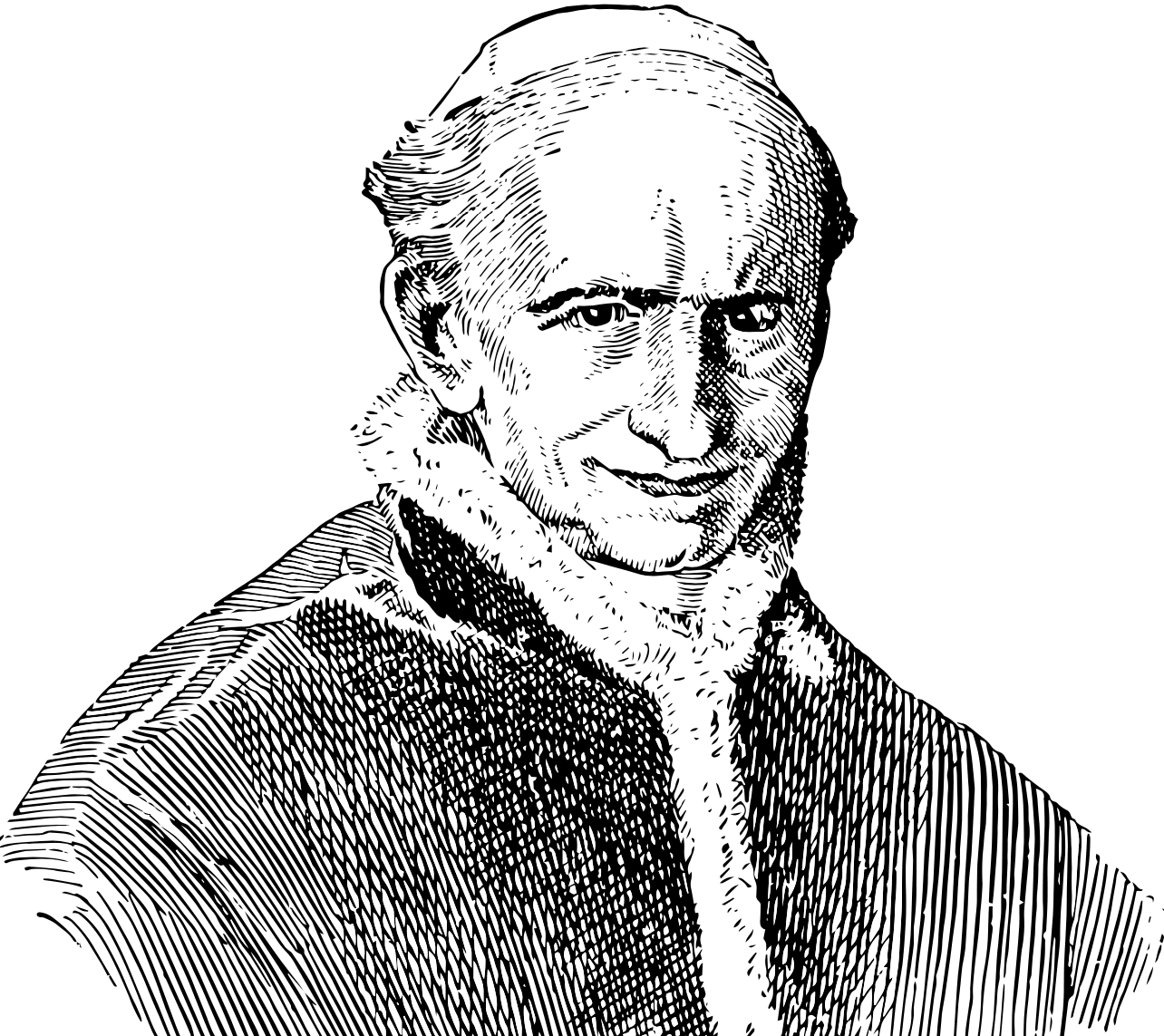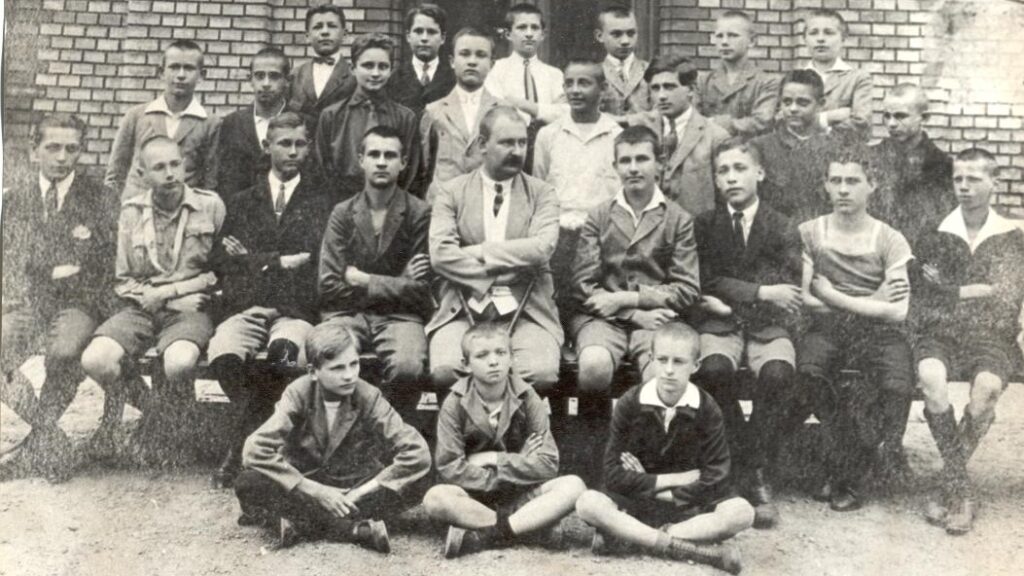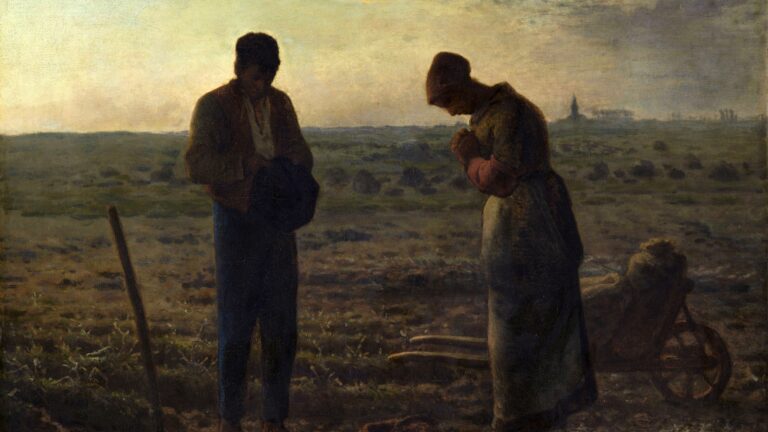What approach should Christians take to modern politics? What are their obligations in contemporary public life? Which Christian values should be endorsed in modern democracy and which political instruments may be used to further those values? Several Christian philosophers, theologians, and politicians have in the past sought to provide answers to these crucial questions. Our series of articles seeks to rekindle interest in those authors, firstly because we believe that they receive less attention than they deserve, and without forgetting the extensive academic literature on them (since most of them attract serious scholarly interest) we argue that their ideas are underrepresented in public discourse. Secondly, we believe that to answer the questions raised above, one should be able to study acknowledged theologians and philosophers who are well-versed in the wisdom of the Christian faith and base their political arguments on it. Consequently, the political insights of modern theologians will be presented with a special focus on the Christian origins and sources of their ideas. We hope that these articles will increase public interest in these inspiring figures.
Our article series already elaborated on several Christian authors, both Catholic and protestant, including Abraham Kuyper, Reinhold Niebuhr, Joseph Ratzinger, Johann Baptist Metz, Ernst-Wolfgang Böckenförde, Helmut Richard Niebuhr, Walter Rauschenbusch, Paul Tillich, John C. Bennett, Erik Peterson.
If we wish to understand the role of Christians in modern politics, it is essential to briefly present the thinking of Pope Leo XIII (1810-1903). Pope Leo XIII is well known in the literature, and his papacy is a recurring point of reference in Christian public discourse. However, most dissertations focus on a single aspect of his papacy, namely the encyclical Rerum Novarum, which we have already touched upon on this website. Of course, a thorough examination of Rerum Novarum is important, as it led to a series of documents on Christian social teaching by Pope Leo XIII. The encyclical on the social issue is significant not only from the point of view of church history, but also because it became a point of reference for the emerging Christian Democratic parties in the twentieth century. What is more, those who followed Pope Leo XIII on the papal throne repeatedly reflected upon Rerum Novarum, and through this process the social teaching of the Catholic Church has been updated and renewed. However, in this short article we do not intend to focus on Rerum Novarum. Through an examination of Pope Leo XIII’s lesser-known encyclicals, we will instead attempt to briefly outline what ‘the first modern pope’ thought of politics. The thinking and modernity of Pope Leo XIII can only be interpreted in a historical context, since that modernity may at first glance appear overstated to those with twenty-first century sensibilities, so it is necessary to present his thinking in its contemporary context. To do this, we must also briefly outline the historical circumstances which pertained during Pope Leo XIII’s papacy.
The unsustainability of these adjectives—‘ultraconservative’, ‘modern’—is well illustrated by the respective situations of Pope Pius IX and Pope Leo XIII
In 1878 Leo XIII succeeded to the papal throne after the death of Pius IX (1792-1878), who has often been branded an ultraconservative. The unsustainability of these adjectives—‘ultraconservative’, ‘modern’—is well illustrated by the respective situations of Pope Pius IX and Pope Leo XIII: The development of Leo’s thinking can be interpreted in relation to the papacy of Pius IX. In fact, for many years Pope Pius IX escaped the accusation of ‘ultraconservatism’, and some church historians even said that as Giovanni Mastai-Feretti, before he became Pope Pius IX, he belonged to a faction within the College of Cardinals that was willing to make concessions to the liberal and national currents of the age.[i] The image of the ‘liberal pope’ is nuanced by the fact that among the chief cardinals considered for papal election were the progressive and Italian patriot Cardinal Tommaso Gizzi and the pro-Austrian Luigi Lambruschini, who served as secretary of state for Pope Gregory XVI.[ii] Thus, in electing Pope Pius IX the cardinals seem to have chosen a middle-ground solution while manoeuvring among the interests of the great powers. In any case, at the beginning of his pontificate, Pope Pius IX did show a willingness to reform: he declared a wide-ranging amnesty for political prisoners, issued a new constitution for the Papal State, and appointed the progressive Cardinal Gizzi as secretary of state. His popularity came to an end with the revolutionary events of 1848, when, as head of the universal church, he did not commit himself to supporting the Italian struggle for independence from the Austrians. Despite a papal ban, troops from the Papal State joined the Italian army, the liberal Pelegerino Rossi, who had been promoted to the prime minister of the Papal State, was killed on the steps of the chancellery, and the revolutionaries besieged the Quirinale, which served as the papal residence. Pius IX fled to Gaeta, in the Bourbon-ruled Kingdom of Naples, where he remained in exile for seventeen months before returning to Rome with the help of French troops.[iii] After his return in 1850, he switched to a ‘non-concessionary counter-revolutionary course’[iv] which he was able to maintain until the withdrawal of French troops in 1870, at which point Rome was occupied by Piedmontese troops, and from then on the pope considered himself a prisoner in the Vatican. It is also important to mention that as early as 1868 he banned Catholic citizens from participating in elections, which meant that Catholic Italian citizens were not to vote, or to be elected. This was known as the principle of ‘non expedit’. Pius IX believed that participating in elections would ‘legitimize a political power which he did not accept.’[v]
It was in these historical circumstances that in 1864 Pope Pius IX published an encyclical beginning with the words Quanta cura. The syllabus attached to the encyclical was a point-by-point list of the errors of the age. Pius IX ‘owes’ the label of ‘ultra-conservative’ to this document, as it condemned freedom of conscience, religion, and speech, and the concept of the people as a source of law. However, this document nevertheless links Pope Pius IX with the later Pope Leo XIII: The compilation of the errors of the age, first presented at the provincial council of Spoleto in 1849, was initiated by none other than the Archbishop of Perugia, later Pope Leo XIII.[vi] The thinking of Leo XIII, the first modern pope, and Pope Pius IX, now considered utterly conservative, was thus much closer than we might at first imagine. Moreover, not only was their thinking close to each other, but in the last six months of his papacy, one of Pope Pius IX’s closest advisors, his camerlengo, was none other than his later successor.
In the end, this proximity did not prevent Pope Leo XIII from being progressive in several respects, in comparison to his predecessor. Although Leo XIII maintained the principle of ‘non-expedit’, he differed significantly from his predecessor in recognizing the social problems of the age, and evaluating the development of world politics. He responded to emerging social problems with the aforementioned encyclical Rerum Novarum, which started a serious social movement, while he reflected on political issues in his two lesser-known encyclicals, which point to the complexity of his thinking. At this point, with reference to his encyclicals Au milieu des sollicitudes, published in 1892, and Graves de communi re, published in 1901, we shall try to outline Pope Leo XIII’s thinking on politics.
The title of the circular of 1892 is itself very telling: it was written in French instead of Latin. This fact alone shows that both the encyclical itself and what the papacy sought to achieve by it must be interpreted within a narrow temporal and geographical frame: specifically, France at that time.[vii] During the Franco-Prussian War of 1870, Emperor Napoleon III suffered a decisive defeat at the Battle of Sedan. When the citizens of Paris heard of the defeat, riots broke out, and on 4 September, the Third Republic was proclaimed from the Paris City Hall: it is generally considered to have lasted until 1940. However, when it was proclaimed, the durability of the republic appeared by no means assured. In the eighty years between the French Revolution and the Third Republic, France had been through seven different forms of government, from empire to constitutional monarchy to various forms of republic. These historical experiences and, at the outset of the Third Republic, the Paris Commune, raised considerable doubts about the stability of the new political arrangement. Doubts also divided French Roman Catholics, who formed different groupings based on their attitude towards the Third Republic. Au milieu des sollicitudes sought to end the division of French Catholics, for the opposition of French Catholics made it impossible for Catholics to take firm and united action against extremist anticlerical decisions and attacks. As Pope Leo XIII put it: ‘We shall not say Catholics only, but all upright and intelligent Frenchmen order to devote their efforts solely to the pacification of their country.’[viii] The Pope recognized the need for Roman Catholics to take action against anticlerical laws in the legislature. To do so, however, Catholics had to accept the republican form of government. Therefore, in his encyclical, he argued that all forms of state can be good if they exist for the attainment of the common good.
In the encyclical, the pope likewise argued that civil power also came from God. Therefore, when new governments are formed, they necessarily represent divine, eternal power and must be accepted in order to promote social good. The pope considered such an obligation of respect and dependence on power to be sustainable for as long as the common good required it. Faced with the anti-Christianity of the early French Republic, Pope Leo XIII drew a distinction between constitutional power and the legislature. He pointed out that legislation is fundamentally different from political power, and even under the most ideal government, legislation can be ‘detestable’[ix] because it is the work of humans, so its quality often depends upon the nature of the people rather than the form of power. However, the acceptance of the republic did not mean for Pope Leo XIII an acceptance of the separation between church and state. He saw such separation as the separation of human and divine law: ‘As soon as the State refuses to give to God what belongs to God, by a necessary consequence it refuses to give to citizens that to which, as men, they have a right’.[x] Then, remarkably, he anticipated by more than 70 years the paradox formulated by the German jurist Ernst-Wolfgang Böckenförde: ‘Whence if follows that the state, by missing in this connection the principal object of its institution, finally becomes false to itself by denying that which is the reason of its own existence.’[xi]
The paradox is that ‘just when the church became the engine of a political subculture, its official program was announcing a turn away from politics’
The Graves de communi re of 1901 is not exclusively for the French, but is a response to a curious, paradoxical situation. It is important to understand that after Pope Leo XIII disseminated the encyclical Rerum Novarum in 1896, a social movement began with the formation of trade unions, which brought with it the politicization of organizations. The paradox is that ‘just when the church became the engine of a political subculture, its official program was announcing a turn away from politics’.[xii] The 1901 encyclical, which seriously criticized the emerging Christian democracy, bears the imprint of this turn. In it, the pope undertook to define Christian democracy, emphasizing that Christian democracy had nothing to do with social democracy. Moreover, Leo XIII described it as a ‘crime’ to attach political significance to the name Christian Democracy, as it signified instead a good deed done primarily for the benefit of the people:
Moreover, it would be a crime to distort this name of Christian Democracy to politics, for, although democracy, both in its philological and philosophical significations, implies popular government, yet in its present application it must be employed without any political significance, so as to mean nothing else than this beneficent Christian action in behalf of the people.[xiii]
As Martin Conway, a professor at Oxford University, points out, ‘The term “Christian democrat” in the pre-1914 era … was used to express the popular orientation of these movements’.[xiv] As a consequence, the encyclical stresses that ‘they must remain absolutely free from the passions and the vicissitudes of parties’.[xv] According to several authors, ‘the influence of the revolutions of 1830 and 1848, and the emerging Catholic social movements, can be sensed behind the pope’s efforts’.[xvi] The papal declaration states that Christian democracy seeks to create a better life for the masses while also protecting private property, as ‘it must safeguard the various distinctions and degrees which are indispensable in every well-ordered commonwealth’.[xvii] So, according to the papal definition, Christian democracy ‘exerts itself on behalf of the lower orders, but it must not forget the interests of the higher social classes, and nor ought it to oppose the rule of law in order to achieve its aims.’[xviii]Pope Leo XIII published eighty-five encyclicals during his twenty-five-year pontificate, making it impossible to outline the fullness of his thinking in such a short article. The presentation of these two lesser-known encyclicals, however, provides an opportunity to hint at the breadth of his reflections. Pope Leo XIII was both a practitioner of realpolitik, who forbade Italian Catholics to run in elections, then encouraged the French to accept their republic, and a theorist who recognized the danger of misunderstanding the concept of Christian democracy. The influence of Pope Leo XIII is unquestionable, both in church thinking and in philosophy more broadly. In one of his first encyclicals, he proclaimed a renewal of Thomist philosophy. Thanks to this neo-Thomist approach, such outstanding Catholic philosophers as Jacques Maritain (1882-1973) or Béla Weissmahr (1929-2005), a Hungarian Jesuit monk, came to prominence in the twentieth century.
Translated by Thomas Sneddon
[i] Victor Conzemius: Zur Debatte um Papst Pius IX. Seligsprechung im Widerstreit (On the Debate over Pope Pius IX’s Beatification in Conflict). Herder Korrespondenz, 54/9 (2000), 452-456.
[ii] József Török: Egyetemes egyháztörténelem II, (Universal Church History II), Szent István Társulat: Budapest, 1999.
[iii] Yves-Marie Hilaire: Két boldog pápa, IX. Piusz és XXIII. János (Two Happy Popes, Pius IX and John XXIII). Communio, 9/1-4 (2001), 52-66.
[iv] Conzemius: Zur Debatte um Papst Pius IX. Seligsprechung im Widerstreit, 453.
[v] Katalin Botos–Máté Botos: Az olasz politikai katolicizmus és XXIII. János pápa. Valóság, 58/4 (2015), 53-63.
[vi] László Gájer: XIII. Leó pápa megnyilatkozásainak filozófiatörténeti előzményei (Különös tekintettel a vallásszabadságra). [Philosophical-Historical Antecedents to the Statements of Pope Leo XIII (with special regard to religious freedom)], (PPKE HTK: Budapest, 2013), http://real-phd.mtak.hu/156/1/Gajer_Laszlo.pdf, accessed 25. May 2022.
[vii] Gájer: XIII. Leó pápa megnyilatkozásainak filozófiatörténeti előzményei.
[viii] Leo XIII: Au milieu des sollicitudes. (1892), 4. https://www.vatican.va/content/leo-xiii/en/encyclicals/documents/hf_l-xiii_enc_16021892_au-milieu-des-sollicitudes.html, accessed 25. May 2022.
[ix] Leo XIII, Au milieu des sollicitudes, 21.
[x] Leo XIII, Au milieu des sollicitudes, 28.
[xi] Leo XIII, Au milieu des sollicitudes, 28.
[xii] Zsolt Enyedi, Politika a kereszt jegyében. Egy politikai szubkultúra természetrajza. (Politics in the Name of the Cross: Natural History of a Political Subculture), Osiris: Budapest, 1998, 124.
[xiii] Leo XIII: Graves de Communi. (1901) 7. https://www.vatican.va/content/leo-xiii/en/encyclicals/documents/hf_l-xiii_enc_18011901_graves-de-communi-re.html, accessed 25. May 2022.
[xiv] Martin Conway: Catholic Politics in Europe 1918-1945. (Routledge: London – New York, 1997), 17.
[xv] Leo XIII: Graves de Communi. 7
[xvi] Gájer, László: XIII. Leó pápa és a demokrácia (Pope Leo and Democracy), Magyar Sion, 11/2 (2017), 283-296.
[xvii] Leo XIII: Graves de Communi. 6.
[xviii] Gájer: XIII. Leó pápa és a demokrácia, 293.








